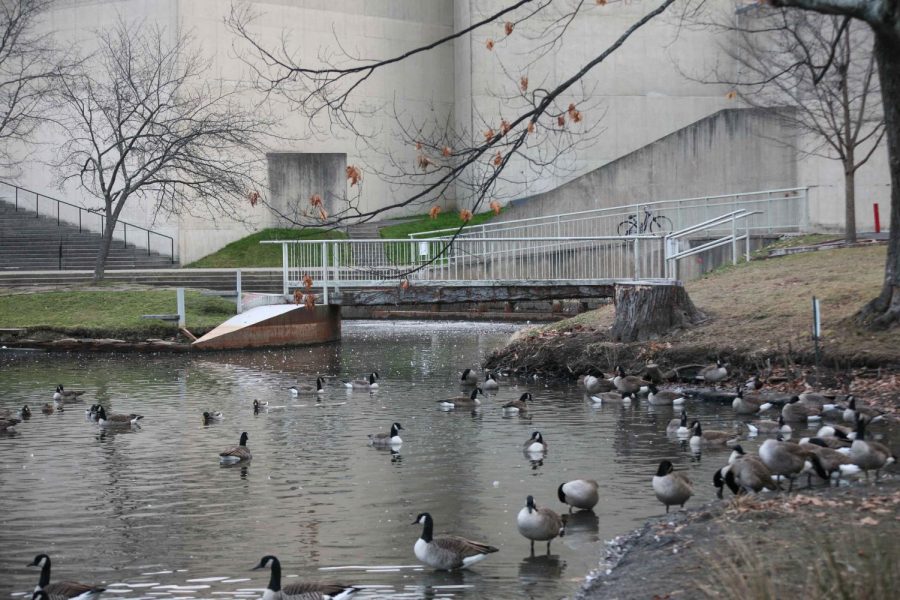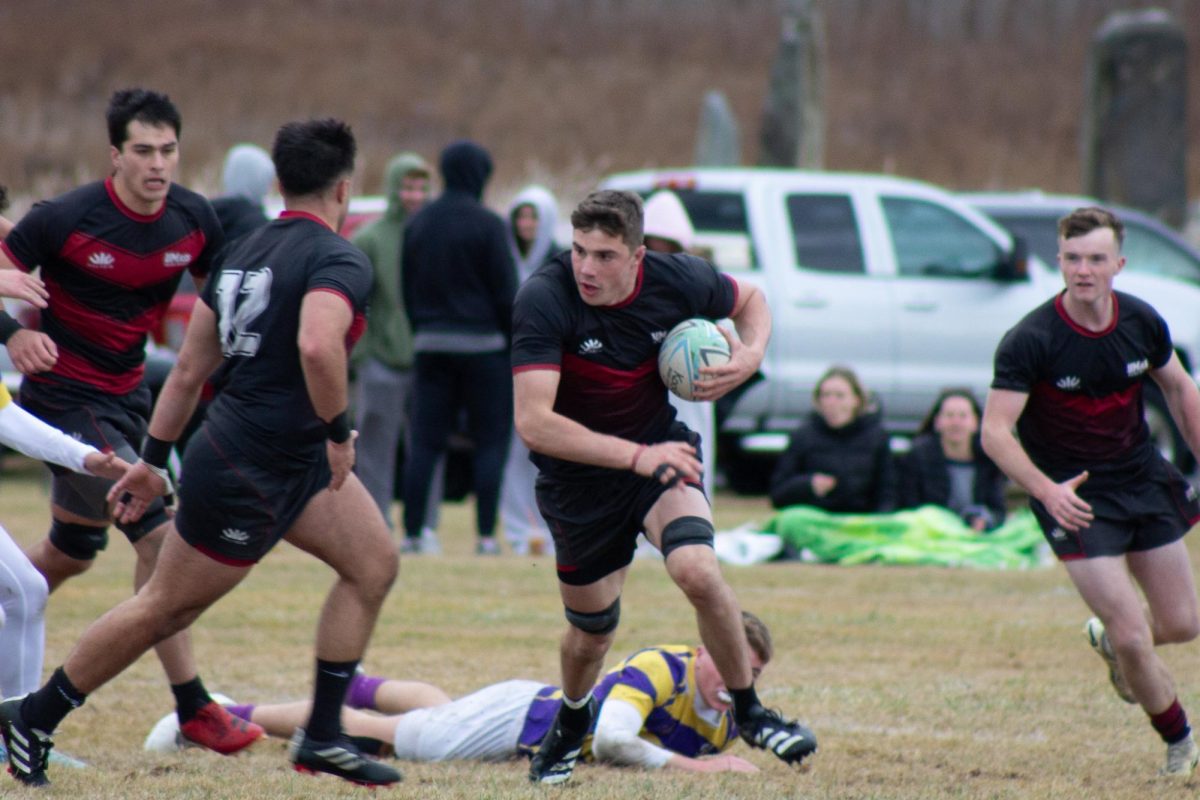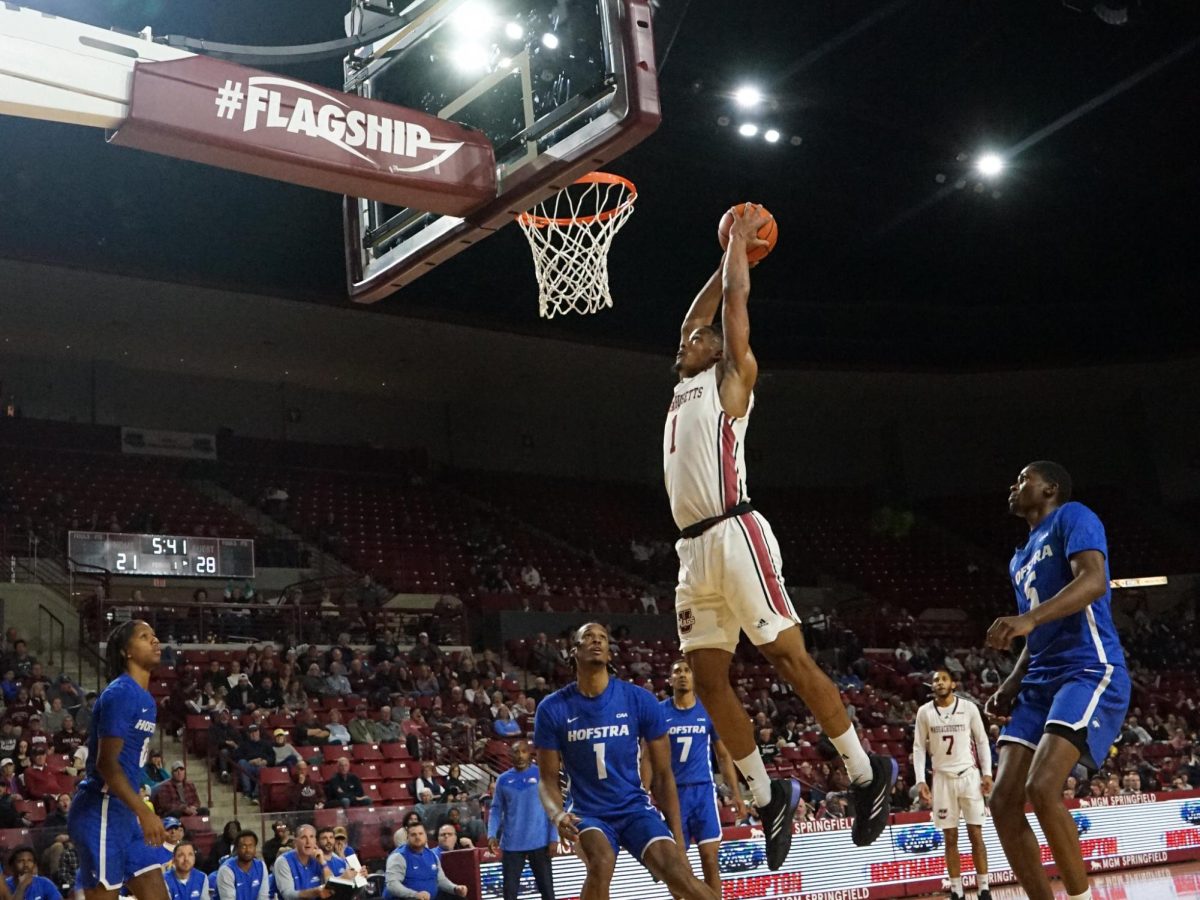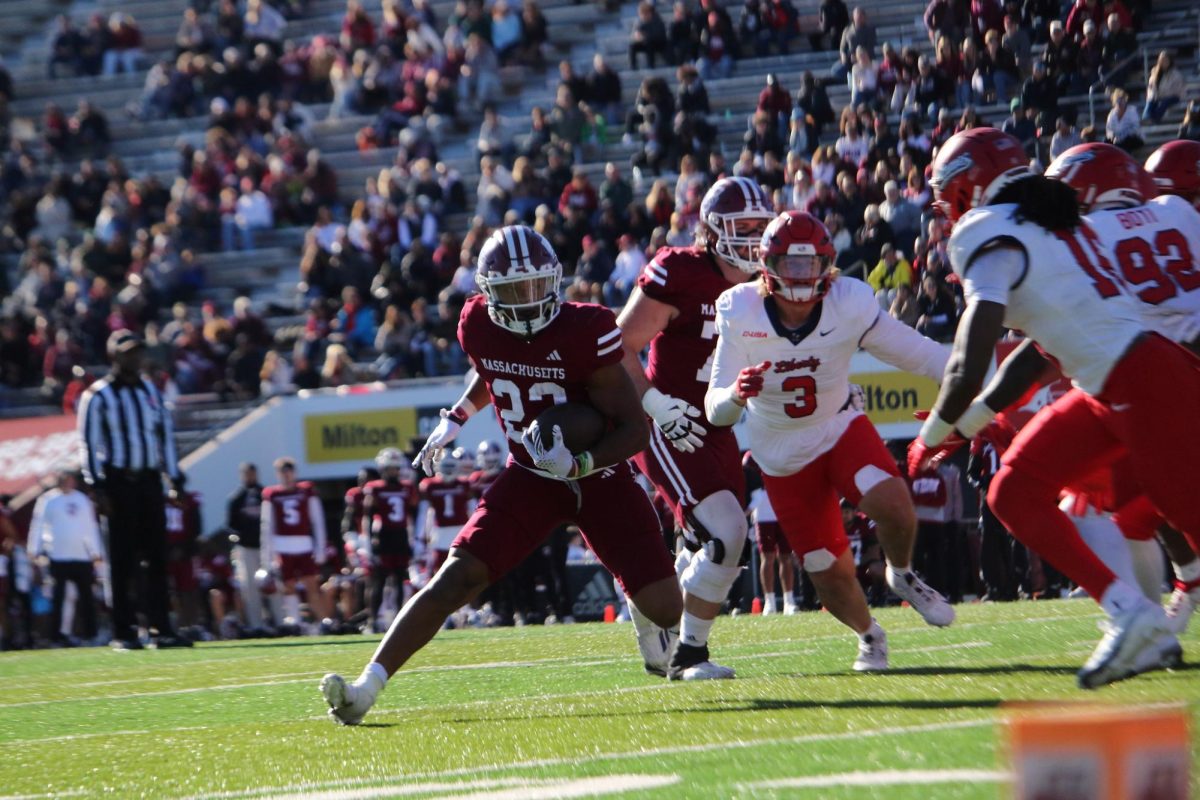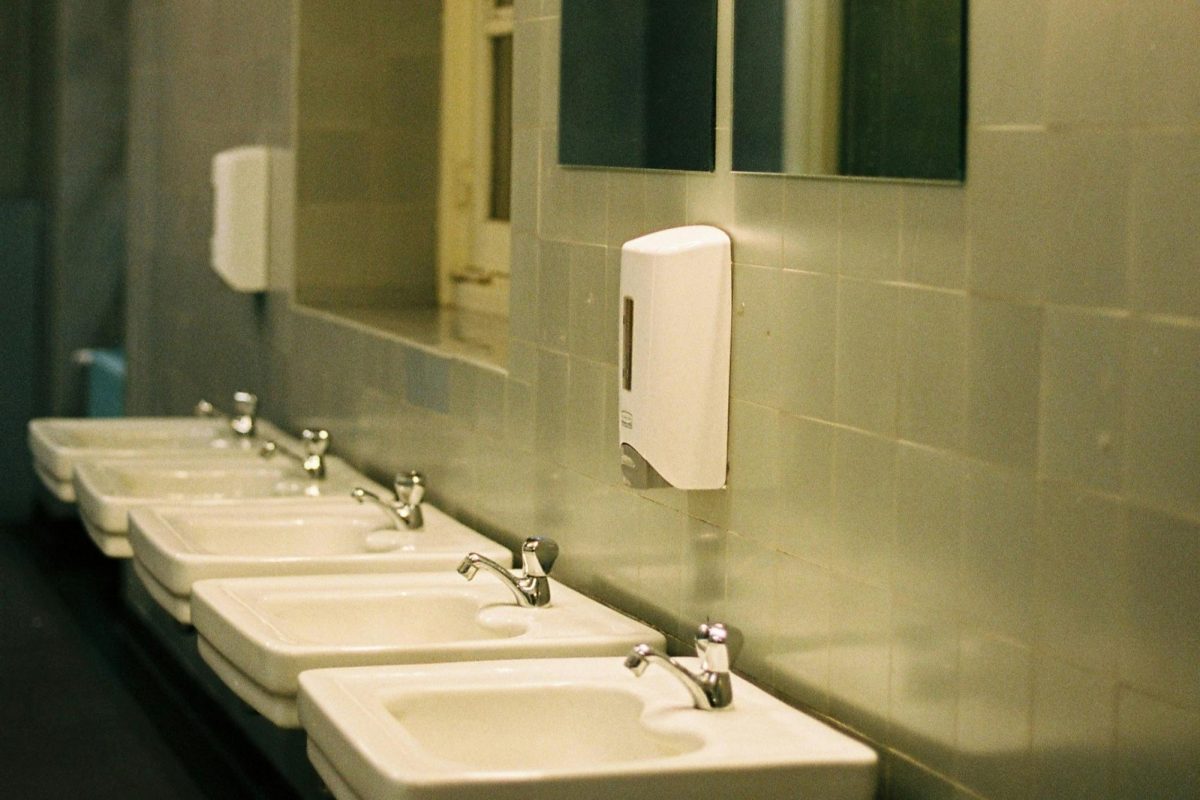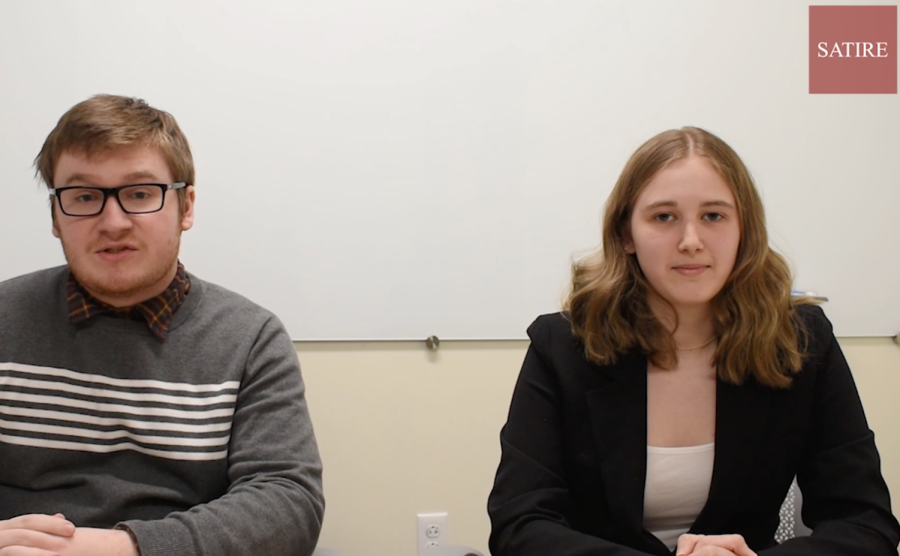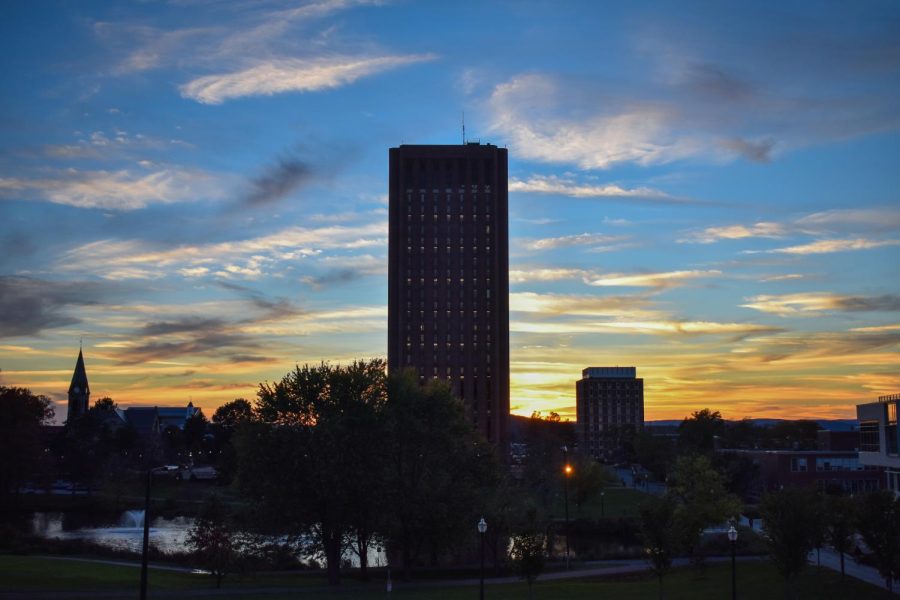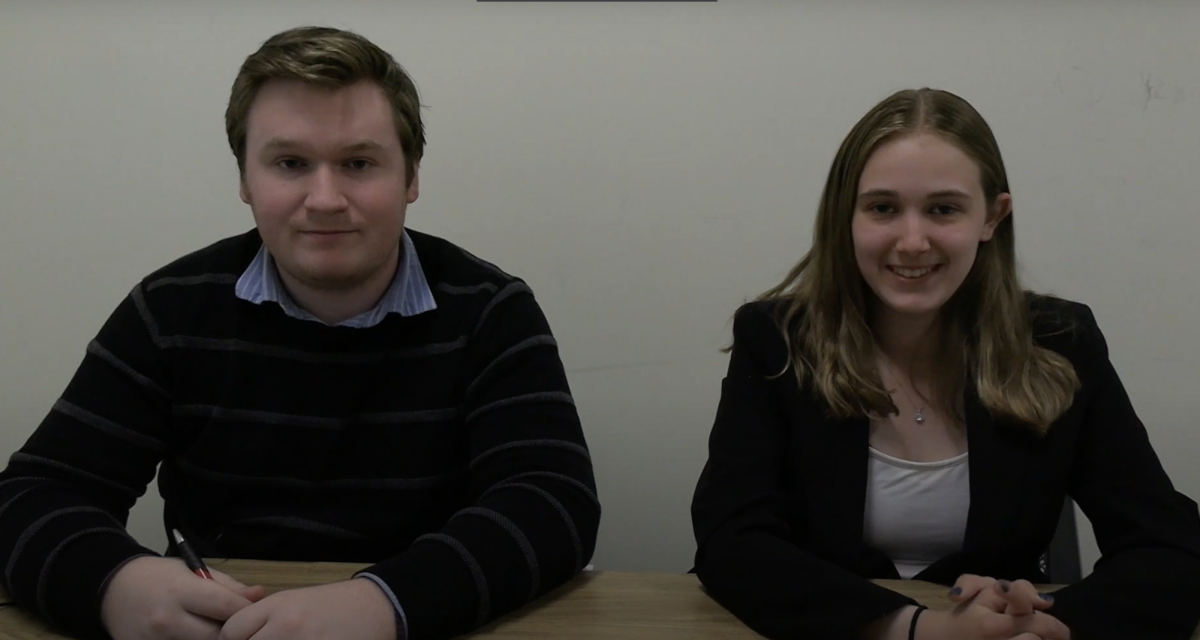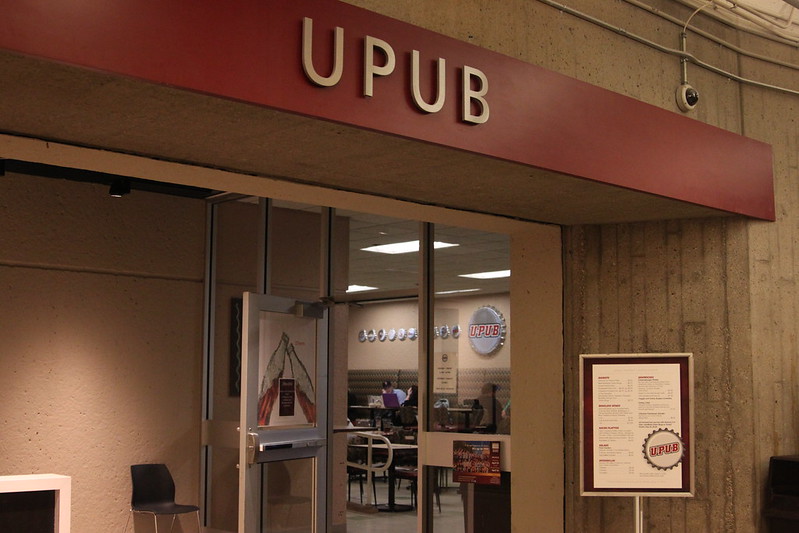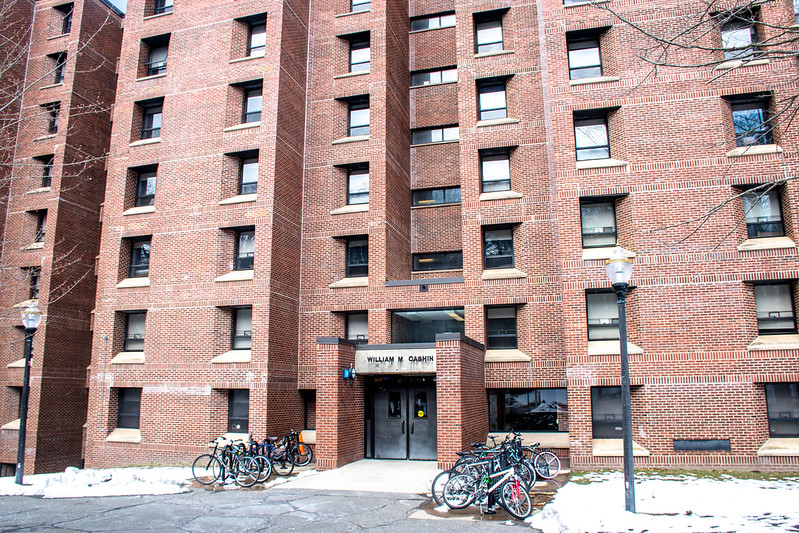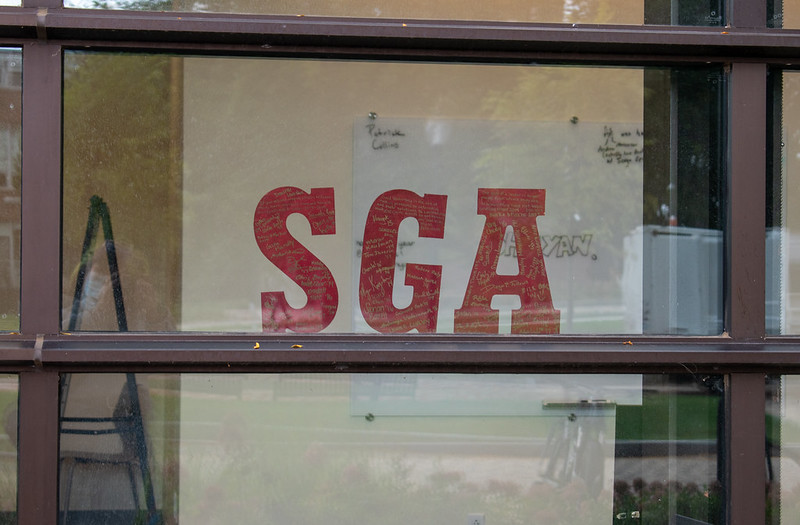For musical students of the University of Massachusetts, the Fine Arts Center serves as the hub of campus life. Its central location on campus between the pond and Haigis Mall makes it conveniently accessible, as well as an easy-to-spot landmark. Yet, the building’s exterior design spawns campus rumors – was it built in the shape of a piano? – and its interior design is an enigma, with an impossible-to-comprehend floor plan understood only by those who practice, work and live inside the brutalist empire.
The FAC’s most confounding conundrum of all sits immediately to its north, just on the edge of the campus pond: a pedestrian bridge. Seemingly simple in appearance, it consists of two separate parts: a sturdy, concrete section consisting of spread-out stairs on the eastern side, and a flat, ragtag sheet of metal masquerading as a sturdy platform connected with rickety metal stairs on the west.
The asymmetrical design of the bridge raises significant questions. Why does one end feel planned and designed, while the other seems more reminiscent of construction equipment? Was a well-planned University initiative to build a one-lane passageway onto the island responded to with an emergency operation of building an escape bridge to get off?
What sort of mad person would build a one-way pedestrian path anyway, especially on a campus with so many pedestrians? Was it a sadist who enjoys viewing the daily pain and awkward social interactions of random strangers as they decide who least needs to get to class on time? The 30 seconds I wait as someone else gets their turn on the one-way passageway is time in the day that I can’t get back. But this pales in comparison to the alternative of walking the entire way around the pond, since as anyone with a desired-path mindset knows, the quickest option is the only option.
The University bureaucrats on this campus apparently disagree. They have made clear their desire to take the laziest and most harmful option whenever possible. This malfeasance is nowhere more obvious than with what is by far the greatest injustice inflicted on students at this campus: the mismanaged adherence to the Three Season Policy.
You see, the pond bridge isn’t even full-service; for a large part of the year it just sits there, deemed by an external entity as inoperable for student use. As state regulation 321 CMR 9.02(c), the Three Season Policy, states: “at the first instant in which a flake of snow hits the ground, the campus bridge must be condemned until, per the judgement of the almighty being, it is made free once again to the students of UMass once the wintery conditions have passed.”
While not wanting students to hurt themselves makes sense, the University’s implementation of this policy has bordered on extremism. When there’s snow on the ground, then sure, block off the bridge. But what about blocking it off an entire week post-snowfall, after all of the final remnants of snow have melted? What about a month?
The University strenuously imposes its “safety at all costs” agenda through zip-tied fencing placed on both entrances to the bridge. This is college – the time and place where young adults are entrusted to make decisions impacting their health and safety. Is adding a gate which any moderately-athletic student could easily jump over truly an important campus priority? The sight of a gated-off but otherwise safe path while being forced to walk a longer way around it is cruel and unusual punishment.
Who controls when the fence should be up and when it should be down? This grandiose person – call them the Bridgemaster, if you will – is overwrought with power. Can one person truly have the foreboding knowledge to predict when the winter will finally end? Is their guidance stronger than Mother Nature’s in denoting the end of each season?
The Bridgemaster must be reasoned with, so that he can be made aware of our sorrows. Maybe he just needs to experience an arduous journey such as the library to Frank or the Band Building to FAC 36 himself without utilizing the shortcut of his own obstruction. Maybe then he can understand the pain which he inflicts upon this campus because of his inaction.
I only know one thing for certain in this world, and it is that if I ever do meet this hopefully-merciful god then there is one thing I will tell him: if you seek peace and prosperity for the students of UMass, you need to cross a metaphorical bridge of empathy. Mr. Bridgemaster, open these gates, discard the fences and tear down this wall.
Magnus Gosling filed this story while lost inside the Fine Arts Center’s basement. We haven’t heard back from the editor we sent to find him, so contact him at your own risk.

